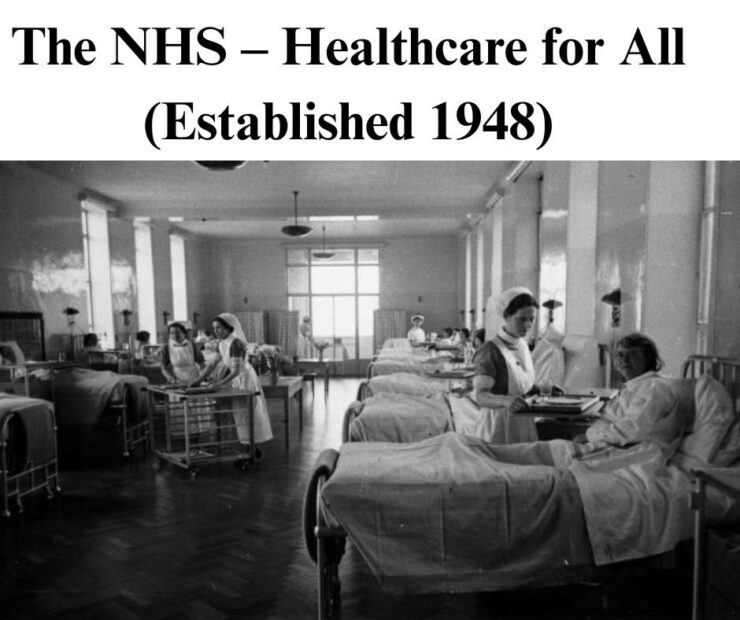
The NHS – Healthcare for All (Established 1948)
On 5 July 1948, the National Health Service (NHS) was born, transforming healthcare in the UK by providing free medical services to all citizens. This groundbreaking initiative was spearheaded by Health Minister Aneurin Bevan under Prime Minister Clement Attlee’s post-war Labour government. ![]() A Revolutionary Concept:
A Revolutionary Concept:
Before the NHS, access to healthcare in the UK was largely determined by one’s ability to pay. The establishment of the NHS introduced three core principles: 
•Universal Access: Healthcare available to everyone.
•Free at the Point of Delivery: No charges at the time of use.
•Based on Clinical Need: Treatment provided based on necessity, not financial status.   
This model positioned the UK as the first Western country to offer such comprehensive, free healthcare to its entire population. ![]() A Legacy of Care:
A Legacy of Care:
Over the decades, the NHS has become a cornerstone of British society, treating over a million people daily in England alone. Its commitment to equitable healthcare has inspired similar systems worldwide and remains a source of national pride. ![]() Celebrating 75 Years:
Celebrating 75 Years:
In 2023, the NHS celebrated its 75th anniversary, marking a milestone in its enduring mission to provide healthcare for all. Commemorations included services at Westminster Abbey, attended by NHS staff, patients, and dignitaries, honoring the service’s profound impact on the nation. 
The NHS stands as a testament to the UK’s dedication to healthcare equality, embodying the principle that access to medical care is a right, not a privilege.
